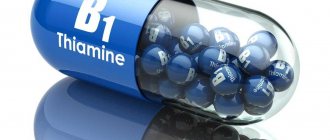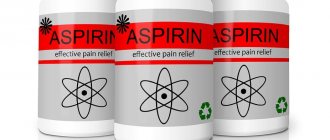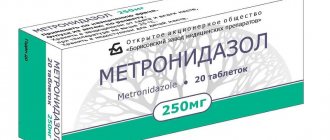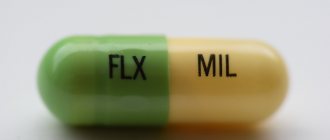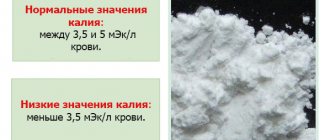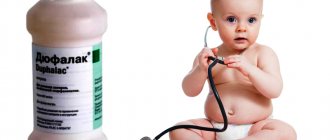B vitamins are water-soluble low-molecular organic compounds involved in cellular metabolism. Most of them are not synthesized by the human body and are supplied only with food or in tablet complexes. Taking too many B vitamins can cause a number of pathologies.
What are the symptoms of overdose in this case? Are there serious complications possible? How to get rid of the problem? You will read about this and much more in our article.
What is hypervitaminosis: its danger
Hypervitaminosis is an excess of one or another group of vitamins in the human body. Such a diagnosis can lead not only to organ damage, but also to poisoning. The main reason for the increased amount of certain substances in the blood, according to experts, is their uncontrolled intake.
Many believe that hypervitaminosis can be obtained even while taking a particular product saturated with this substance. This is wrong!
According to statistics, overdose of B vitamins is diagnosed in 70% of cases in children under 7 years of age. This is because parents are diligently trying to improve the condition of the baby’s immune system. In addition, most vitamins, when in excess in the body, are not accompanied by pronounced symptoms of hypervitaminosis.
Restoration of the body
In mild and moderate forms of overdose, treatment of the victim at home is allowed - general strengthening agents, bed rest, diet, as well as diuretics and laxatives are used.
In case of severe poisoning with B vitamins in the presence of an acute pathological condition, the patient is redirected to the hospital and placed in the intensive care unit.
A specific treatment procedure is prescribed by a specialized specialist. The main directions are support of basic vital signs, symptomatic therapy, protection of organs and systems, and the fight against complications. There is no specific antidote to vitamin B.
Typical actions in case of poisoning:
- Gastric lavage;
- Diuresis;
- Hemodialysis;
- Oxygen therapy;
- Hepatoprotection;
- Connection to artificial lung ventilation devices, artificial kidney, installation of heart pacemakers, and so on;
- Drug therapy. Conservative treatment may include corticosteroids, anticonvulsants, bronchodilators, diuretics and choleretic drugs, antibiotics and other groups of drugs prescribed primarily for symptomatic manifestations of overdose.
B vitamins
B vitamins belong to the water-soluble group. People first started talking about them in 1912. At that time they were not separated, considered a single substance. As it became clear a little later, this group contained many substances that were enriched with nitrogen. Each of them had a specific effect on the body and was designated from B1 to B20.
After multiple studies, scientists found that the vast majority of B vitamins are produced by the body independently. Thus, the amount of these substances was noticeably reduced.
Today, overdose of B vitamins is common. Therefore, it is extremely important to know which substance affects which organ system. So:
- B1 or thiamine is responsible for all types of metabolism in the human body.
- B2 or riboflavin also takes an active part in metabolic processes, and also improves the functioning of the visual apparatus. Has a beneficial effect on the condition of the dermis.
- B3 or nicotinic acid has a positive effect on the functioning of the nervous system and regulates metabolism.
- Vitamin B6. What is it for? This vitamin or pyridoxine is responsible for the full functioning of the nervous system, improves the functioning of the immune system and stimulates hemoglobin synthesis.
- B7 is responsible for saturating the body with energy reserves.
- B9, also called folic acid, is one of the most important elements among the B vitamins, which is responsible for the development of the fetus during pregnancy. It helps develop the immune system and nervous system.
- B12 or cyanocobalamin is responsible for the synthesis of red blood cells and the full functioning of the central nervous system in the human body. “What is vitamin B12 for?” is a simple question; it is responsible for the formation of blood cells, having a beneficial effect on the state of a person’s hemoglobin level.
Contraindications
When planning your diet and before taking medications containing B12, you should consider contraindications . The use of cyanocobalamin is not recommended:
- with hypersensitivity to the element;
- erythrocytosis and erythremia;
- with thromboembolism;
- during pregnancy (only as prescribed by a doctor);
- during feeding (only as prescribed by a doctor).
Also, taking the vitamin should be done with caution if you have the following problems:
- malignant and benign formations;
- angina pectoris;
- tendency to form blood clots (problems with the cardiovascular system).
In the cases described above, a prescription for vitamin B12 is not prescribed, or the doctor personally adjusts the dosage, taking into account the patient’s tests and the characteristics of his body.
Types of hypervitaminosis
Overdose of B vitamins can be either acute or chronic. The first of them occurs when a person once loads the body with a dose of a substance that is much higher than the recommended one.
Chronic hypervitaminosis appears after long-term intake of vitamins in an incorrectly selected dose. Most often, an overdose of this nature is observed in the elderly, pregnant and nursing mothers, as well as children. And this is dangerous for the body.
B6 (pyridoxine)
With prolonged use of vitamin B6 in excess dosages, anemia develops, coordination of movements is impaired and numbness of the limbs appears.
Like many elements of group B, vitamin B6 in large doses causes allergic reactions. B6 is a water-soluble substance of B vitamins and has little toxicity, so signs of overdose are observed mainly in people with hypersensitivity to the B6 drug. Increased secretion of hydrochloric acid leads to increased acidity in the stomach. When B6 was administered rapidly during injections, patients experienced seizures in rare cases. Also, an overdose of B6 can reduce milk lactation in lactating women.
Some vitamin complexes contain high dosages of B6, so these synthetic supplements should be taken with caution. There is no overdose when taking B6 and other B vitamins along with magnesium.
Symptoms of overdose of B vitamins
Regardless of the type of hypervitaminosis, it has common symptoms. These include:
- Speech and motor disorders.
- Sleep disturbance.
- Increased body temperature.
- Redness in certain areas of the skin.
- Dizziness.
- Acute pain in the temples.
- Cardiopalmus.
There are also a number of symptoms that can help determine an overdose of vitamin B1:
- Rashes on the neck, shoulders, chest, which are accompanied by high body temperature.
- Deviations in kidney function.
Scientists have proven that excess B1 is very dangerous and puts a person at risk of developing anaphylactic shock.
Hypervitaminosis caused by vitamin B3 can cause the following symptoms:
- Burning of the skin of the face and body.
- Increased eye sensitivity.
- Diarrhea.
- Nausea and vomiting.
- Muscle pain and low blood pressure.
With an overdose of vitamin B6, the following changes in the body’s functioning may occur:
- Skin rash.
- Dizziness and loss of consciousness (in extremely rare cases).
- Increased acidity of the gastrointestinal tract.
- Exacerbation of gastrointestinal diseases (in case of gastritis or ulcers).
Everyone should know the symptoms of an overdose of B vitamins in adults, since no one is immune from this.
B2 (riboflavin)
Excess B2 as well as vitamin B1 causes allergic reactions.
The administration of large doses of riboflavin causes blockage of the kidney ducts, diarrhea and fluid accumulation in the body. Considering that vitamin B2 does not accumulate in the body, it is necessary to consume foods containing this element every day. With normal kidney function, an overdose is unlikely, since excess b2 is excreted in the urine. Hypervitaminosis B2 affects the color of urine, which becomes bright yellow. If there are no vegetable oils in the diet, large doses of vitamin B2 cause fatty liver. Symptoms include impaired tendon reflexes, dizziness, and cerebral insufficiency. The absorption of iron is impaired, limbs become numb, and a tingling and burning sensation appears.
Sources
Products that are rich in vitamins of this group are plant and animal. The most popular and accessible to everyone: legumes, meat, cereals, liver and kidneys, dairy products.
Also, B vitamins are found in large quantities in fish and nuts, many berries, vegetables and fruits. It is worth considering that some substances from this group are produced by the body independently.
The main feature of vitamin B tablets is that it can be quickly eliminated from the body under the influence of certain factors. The main ones are stress and increased physical activity. Why is vitamin B12 taken? It helps prevent nervous tension, having a positive effect on the central nervous system.
Indications for use
Studies have confirmed that B12 plays an important role in human life, and its deficiency and excess leads to a number of unpleasant consequences . At the same time, in practice, cyanocobalamin is also prescribed for the treatment of chronic diseases:
- Chronic anemia. The disease, as a rule, occurs against the background of a deficiency of the element in question. The vitamin is also included in the diet during a complex course of treatment of various types of anemia caused by poisoning with toxic substances.
- Chronic hepatitis, liver failure, liver cirrhosis. The ability of B12 (cyanocobalamin) to have a positive effect on the condition of the liver and restore damaged cells has been scientifically proven.
Course B12 is often prescribed if the following problems exist:
- polyneuritis;
- neuralgia;
- radiculitis;
- malnutrition;
- funicular myelosis;
- cerebral palsy;
- skin diseases (including psoriasis and various types of dermatitis).
Cyanocobalamin is prescribed for the purpose of prevention - simultaneously with the prescription of vitamin C, PAS and biguanides in increased dosages. B12 has a positive effect on the body when:
- radiation sickness;
- pancreatic tumors;
- small bowel resection;
- Crohn's disease and so on.
Recently, prescriptions containing vitamins have been prescribed for prolonged stress and persistent infections. It also works well for respiratory diseases. The substance is also actively used in maternity wards - B12 (cyanocobalamin) is prescribed to premature babies.
What dose of a substance can cause an overdose?
Each of the vitamins in this group has its own therapeutic dose, which cannot be exceeded. It should be calculated individually by an experienced specialist depending on the age, weight and category of the patient. Thus, a prophylactic dose will be prescribed for pregnant and nursing mothers, as well as children. For people leading an active lifestyle, it will be slightly higher. For those diagnosed with hypovitaminosis, an individual therapeutic dose of the substance will be selected.
In order to develop an overdose of a particular substance in the body, it must be taken tens and sometimes hundreds of times more than recommended. Therapeutic doses of B vitamins look like this:
- B1— 1.2-1.4 mg;
- B2—1.5-3 mg;
- B3— 5-10 mg;
- B6—2-2.2 mg;
- B9—0.2-0.5 mg;
- B12—2-5 mg.
When to call an ambulance
It is necessary to seek help from qualified specialists in case of an overdose of B vitamins in cases where a pregnant woman, as well as a small child or an elderly person has suffered.
In addition, you should immediately call an ambulance when a person experiences seizures, depression, or, conversely, agitation of consciousness. You should not delay calling doctors even when the victim loses consciousness, his body temperature rises and falls sharply, or allergic rashes appear on the skin.
If the patient is taken to a medical facility, he must be provided with the necessary assistance. So, first of all, he is prescribed a strict diet, which includes a complete absence of foods containing B vitamins. The victim is also recommended to take isotonic solutions. This is often simple sodium chloride or Ringer's solution. Next, experts prescribe diuretics to speed up the process of cleansing the body of toxic doses of substances.
special instructions
Before taking B12, you should consider the following points:
- Cyanocobalamin is poorly absorbed when taken orally. This problem can be solved by simultaneous administration with folic acid.
- Taking B12 in dosages exceeding 100 mcg per day should be under the supervision of a physician and with periodic checking of the quality of blood clotting. If signs of leukocytosis and erythrocytosis appear, use should be discontinued.
- Due to better absorption, B12 solutions are administered intramuscularly.
- Prescribing vitamin supplements to individuals who are prone to blood clots should be done with caution. In the presence of acute thromboembolic diseases, administration of the drug is prohibited.
- In the presence of angina pectoris, the drug is prescribed with caution and in a lower dosage ( up to 100 mcg ).
Do you need to take B vitamins?
In our country, it is customary to take vitamin complexes twice a year. Allegedly, in spring and autumn-winter the body is weakest and needs additional nutrition. All this is nothing more than fiction. Moreover, B vitamins are found in almost all foods that we eat daily.
The most typical deficiency for our human body is a lack of vitamin D, as well as iodine, zinc and magnesium. To replenish their amount in the blood, you need to consult a doctor, and take each substance separately according to a special scheme, and not load the body with a complex of substances that you may not need to take at all.
Also, do not forget that to diagnose hypo- or hypervitaminosis you need to undergo a full medical examination. After this, you will be able to understand exactly what your health is lacking and what should be taken additionally. Prevention of hypervitaminosis should not be carried out without the supervision of a doctor.
Scientists have not proven the fact that the body needs complex drugs simply “in reserve” and to strengthen the functioning of the immune system. They are of the opinion that taking certain substances is advisable only if their deficiency is detected.
